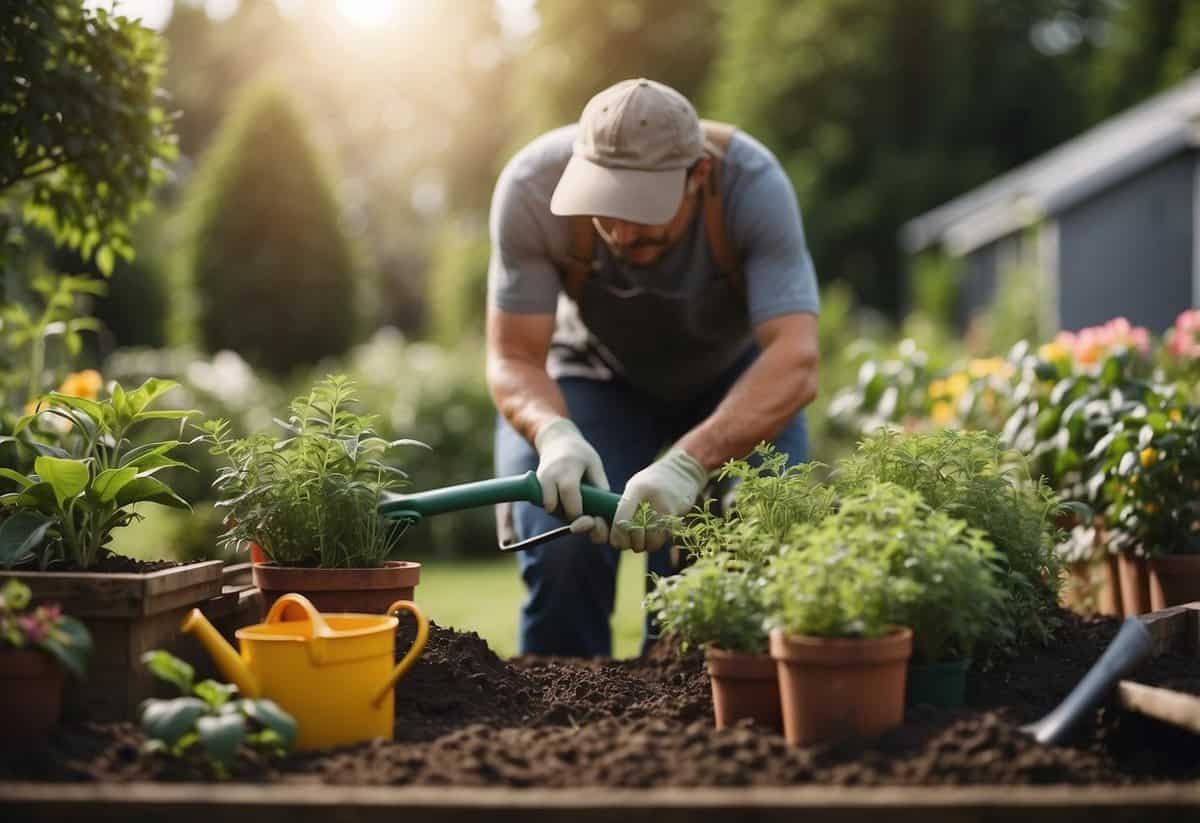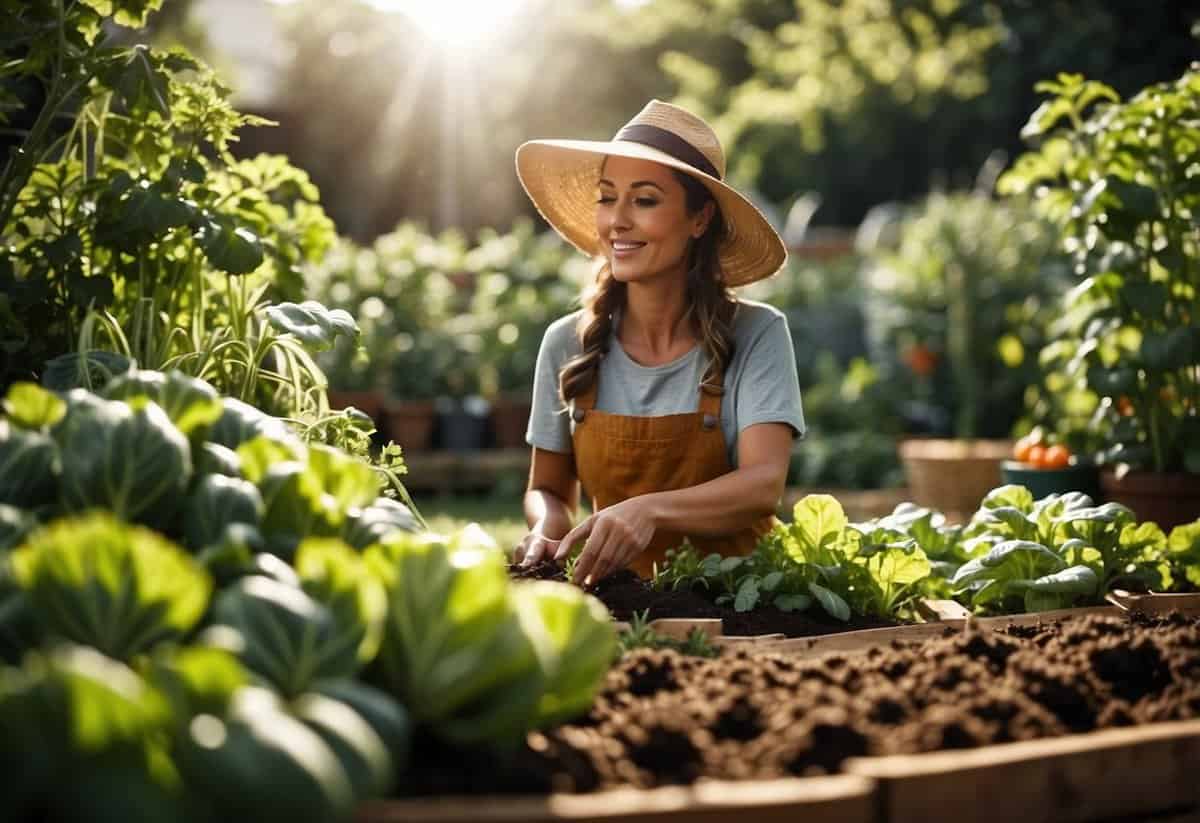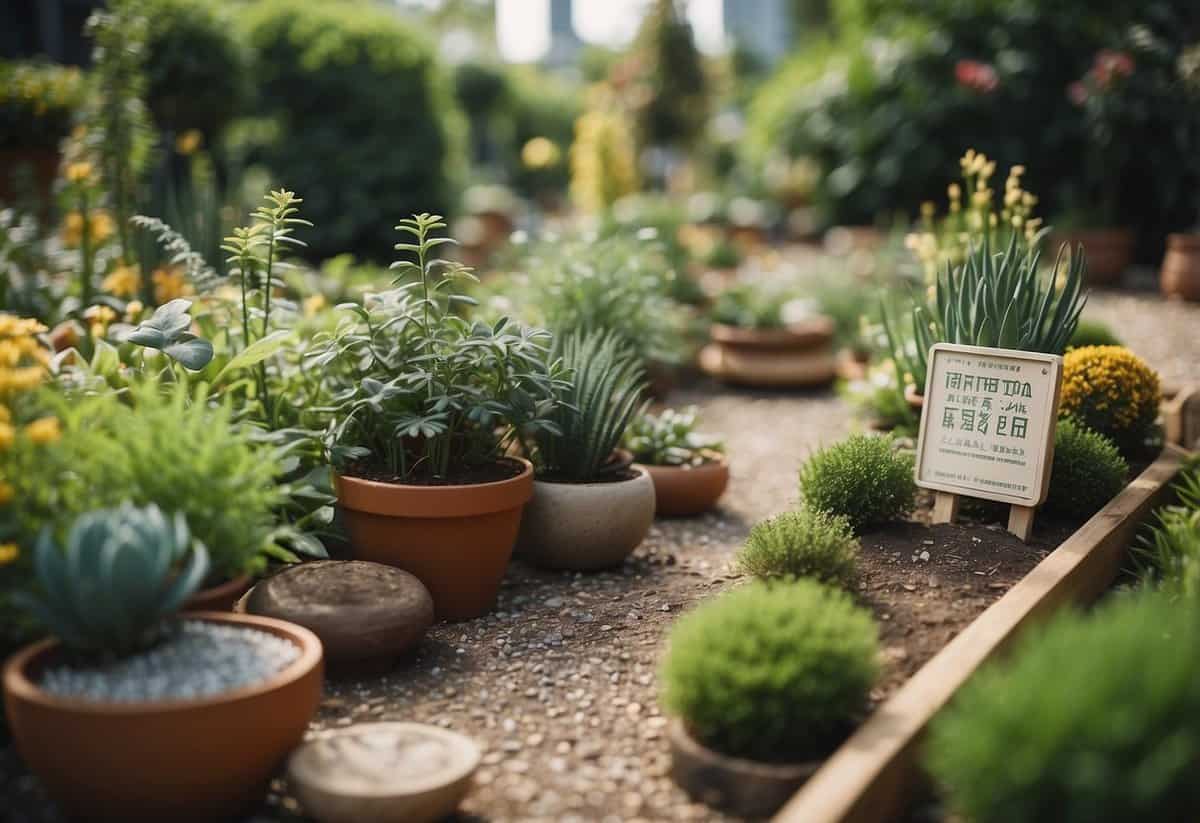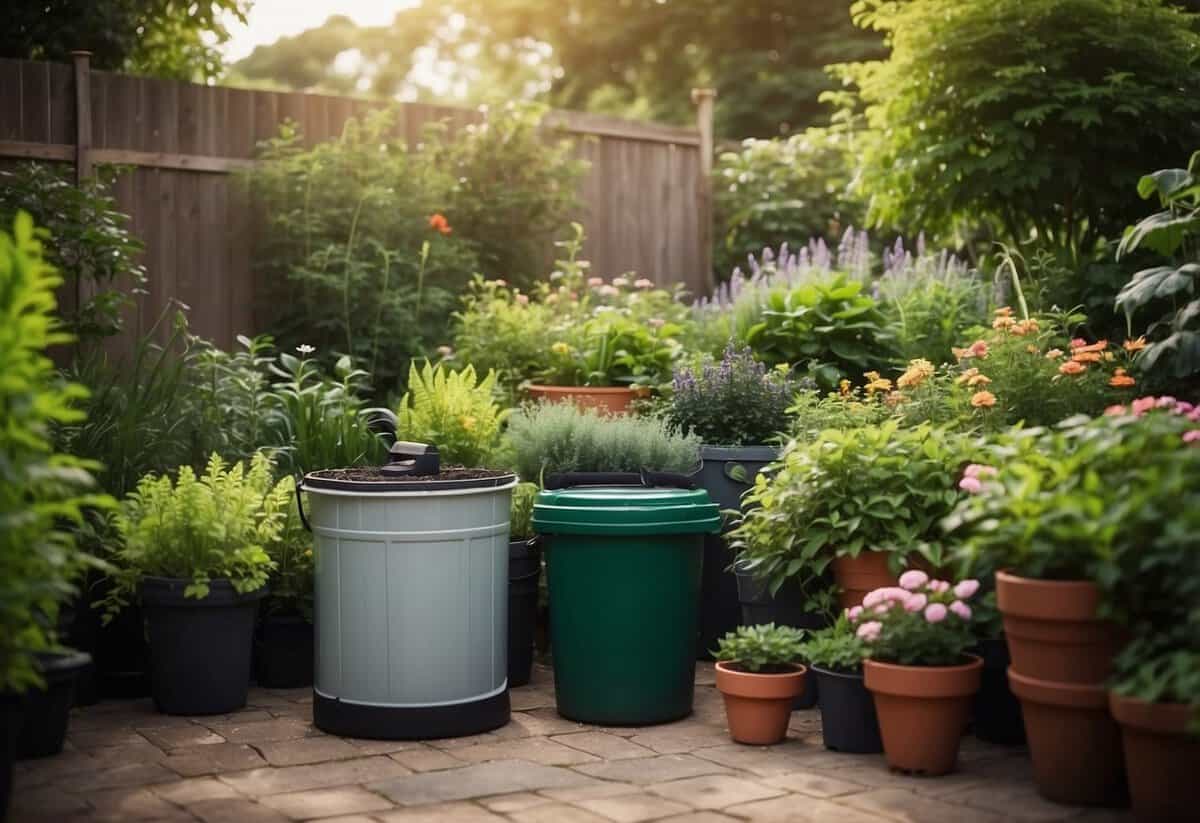Is Gardening Good Exercise in NHS? Discover Health Benefits and Tips
Gardening has become an increasingly popular way to stay fit and healthy. According to the NHS, gardening is a great exercise that can improve both your physical and mental health. It’s amazing how activities like planting, weeding, and watering can help you get in shape while also enjoying the fresh air.

You might be surprised to learn that the CDC says gardening is as effective as a gym workout. This means you can break a sweat and build strength without needing a gym membership. Plus, incorporating gardening into your routine can help you meet the NHS guidelines of doing at least 150 minutes of moderate-intensity activity each week.
Not only does gardening boost your physical health, but spending time among nature also has positive effects on your mental wellbeing. The act of working with plants and being in a green space can reduce stress and improve your mood. If you’re looking for a fun and rewarding way to enhance your health, gardening may be the perfect activity for you.
The Physical Health Benefits of Gardening

Gardening isn’t just a hobby; it’s a great way to boost your physical health. Engaging in gardening activities can help improve your strength, reduce the risk of heart disease, and enhance your flexibility and balance.
Improving Strength and Fitness Through Gardening Tasks
Gardening involves various tasks that challenge your body in different ways. Digging, lifting, and weeding target major muscle groups such as your legs, arms, and back. These activities can increase your muscle strength and endurance over time.
Pulling weeds and planting also make you move in different ways, which can improve your overall fitness level. This kind of physical activity is as effective as more traditional forms of exercise like weightlifting and aerobics, helping you to build muscle strength in a fun and engaging manner.
Gardening for Heart Health and Reducing Disease Risk
Spending time gardening can be great for your heart. Physical activities like mowing the lawn or raking leaves get your heart rate up, offering similar benefits to aerobic exercise. This helps to improve blood pressure, lower bad cholesterol levels, and boost good cholesterol levels.
Regular gardening can also help reduce the risk of heart disease and stroke. Furthermore, staying active in the garden can help in managing diabetes and obesity, contributing to better overall health.
Flexibility, Balance, and Rehabilitation
Gardening can improve your flexibility and balance. Stretching to reach plants or bending to pick flowers keeps your body limber and helps prevent stiffness. Over time, these repetitive movements can also enhance your coordination.
For people recovering from surgery or injury, gardening offers a low-impact way to regain mobility and strength. The gentle physical activity helps in rehabilitation by encouraging movement without straining the body too much.
Overall, gardening is a versatile form of exercise that can offer numerous physical health benefits. Whether you’re digging, planting, or simply enjoying the physical activity, you’re making a positive impact on your body.
Mental and Emotional Wellbeing in the Garden

Gardening is a fantastic way to improve your mental and emotional health. By engaging with nature and green spaces, you can reduce stress, boost your mood, and enhance your social life.
Gardening to Cultivate Mindfulness and Reduce Stress
When you garden, you focus on the task at hand, which helps you stay present. This process is known as mindfulness. It’s an effective way to reduce stress and calm your mind.
Gardening can lower stress hormones like cortisol. Spending time with plants and soil can boost your serotonin levels, making you feel happier. The physical activity involved in gardening also releases endorphins, which can help reduce anxiety.
Additionally, tending to your garden and watching plants grow can give you a sense of accomplishment and purpose. It can serve as a healthy distraction from daily worries, helping you feel more content.
The Therapeutic Effects of Green Space and Nature
Green spaces and nature have a calming effect on your mind. Being surrounded by greenery and wildlife can help lower anxiety and improve your overall mood.
Research has shown that spending time in nature can enhance your mental wellbeing. The peaceful environment of a garden can provide a break from the busy, noisy world, offering you a place to relax and breathe deeply.
Nature can also positively affect your brain. Gardens offer a variety of sensory experiences, from the colors of flowers to the sounds of birds. These elements can help you feel more connected to the world and promote a sense of peace.
Community Gardening and Social Wellbeing
Community gardening offers more than just physical benefits. It can strengthen your social ties and provide a sense of belonging. Working together with others in a garden can create a shared purpose and foster friendships.
Through community gardening, you can connect with neighbors and build a support network. This social interaction can reduce feelings of loneliness and improve your emotional health.
Being part of a gardening community can also make you feel like you are contributing to something bigger than yourself. Sharing the fruits of your labor and learning from others can boost your happiness and overall life satisfaction.
Nutrition and Health: Grow Your Own Produce

Growing your own produce not only enhances your physical health but also helps you connect emotionally and mentally with what you eat. Homegrown foods like tomatoes and herbs offer significant nutritional benefits and a greater appreciation for your food.
The Nutritional Advantages of Fresh, Homegrown Foods
When you grow your own plants, you gain access to some of the freshest, most nutritious foods possible. Freshly picked fruits and vegetables often have higher vitamin content than store-bought varieties. For example, homegrown tomatoes are rich in vitamins A and C.
These vitamins are essential for maintaining good health. Additionally, growing lettuce, strawberries, and herbs in your garden provides you with fresher options than store-bought produce. You can also control how your plants are grown, avoiding harmful pesticides and ensuring organic growth.
Gardening also lets you enjoy seasonal produce, ensuring you get a variety of nutrients year-round. Seasonal foods are often better tasting and more nutrient-dense.
Connecting With Your Food: The Journey from Seed to Plate
Connecting with your food starts with planting seeds and nurturing them. Watching your plants grow fosters a deeper appreciation for their nutritional value. It also encourages mindful eating, adding a fresh, homegrown touch to your meals.
Gardening gives you physical exercise and mental satisfaction. Planting, weeding, and harvesting are physical activities that contribute to your well-being. The joy of eating what you’ve grown yourself can’t be overstated. It’s an experience that brings you closer to nature and helps you understand the hard work behind food production.
By growing your own produce, you gain more than just fresh tomatoes or salad greens. You gain a sense of accomplishment and improved health. A small garden plot or even a few containers on a balcony can make a big difference.
Educational and Cultural Aspects of Gardening

Gardening offers numerous educational opportunities and reflects various cultural practices globally. It helps people learn new skills and understand biodiversity while experiencing different gardening methods worldwide.
Learning and Skill Development in the Garden
Gardening is a great way to develop important skills. It involves learning about plants, soil, and weather conditions. This practice enhances your knowledge of horticulture and the natural world. Working in the garden can improve your fine motor skills and dexterity. Activities like planting seeds and pruning require careful attention and precise movements.
Gardening also offers a chance to learn new tips and techniques. You can experiment with different gardening methods and see what works best in your environment. Trying out organic gardening or hydroponics can be both fun and educational. Schools often use gardens to teach students about biology and environmental science.
Engaging in gardening activities can also reduce stress and improve your overall well-being. It’s a wonderful way to stay active and enjoy the outdoors while gaining new knowledge and skills that you can use long-term.
Global Gardening Practices and Biodiversity
Gardening practices vary widely around the world, reflecting cultural differences and local biodiversity. In Japan, for example, gardens emphasize tranquility and natural beauty, often featuring elements like water, stones, and carefully pruned trees. These practices showcase a deep respect for nature and mindfulness.
Using diverse plants from different parts of the world can increase your garden’s biodiversity. This not only looks beautiful but also attracts a variety of wildlife including butterflies and bees. You can learn a lot by exploring global gardening traditions and integrating them into your own garden.
Understanding and adopting these practices can help you appreciate the rich history and variety of gardening worldwide. You might try planting some exotic species or arranging your garden in a new way inspired by international styles.
Environmental Impact and Personal Contributions

Gardening has more benefits than you might think. It not only boosts your physical health but also contributes positively to the environment. Let’s explore how your gardening efforts help combat climate change and support local wildlife.
Gardening in the Context of Climate Change
When you tend to your garden, you’re actively helping to fight climate change. Plants, especially trees, absorb carbon dioxide (CO2) from the atmosphere, a key factor in reducing greenhouse gases. By planting more, you help lower the overall carbon footprint.
Use eco-friendly practices in your garden. For example, composting reduces waste and enriches your soil. Collecting rainwater can save water resources. These small steps contribute to a healthier planet. Local gardening groups often share such sustainable techniques, making it easier for you to adopt them in your routine.
Wildlife Conservation and the Role of Gardeners
Your garden is a haven for wildlife. By planting native species, you provide food and shelter for local birds, insects, and other creatures. This helps maintain the biodiversity crucial for a balanced ecosystem.
Create spaces for wildlife. Leave a corner of your garden wild or build a small pond to attract more species. Simple actions like these can make a big difference. According to research, gardeners play a significant role in protecting wildlife and enhancing the natural environment.







